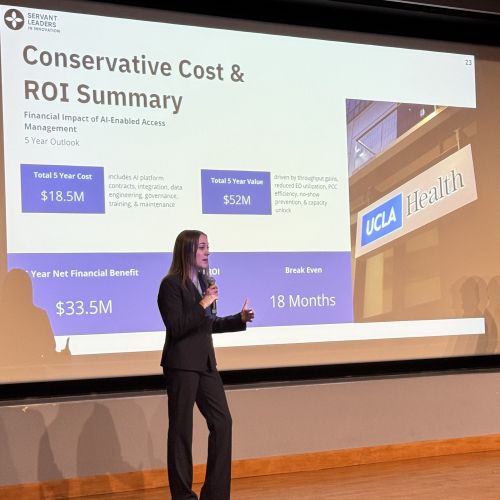Paid family medical leave in the U.S.: Good for families, good for the economy
The WORLD Policy Analysis Center publishes a comprehensive report examining evidence on the health benefits of paid family and medical leave.
Adequate paid family and medical leave in the United States is necessary for the health and economic welfare of individuals and families. Adequate paid leave ensures workers are able to tend to a newborn baby with health benefits for both baby and parents, and the positive health dividends continue for years to come. It allows workers to care for seriously ill family members, aiding their full recovery. It provides workers with chronic illnesses the ability to remain attached to the labor force. It is also in alignment with a strong economy.
Twenty-five years ago this month, the United States (U.S.) passed the Family and Medical Leave Act (FMLA) which guarantees workers up to 12 weeks of leave for family or medical reasons. Yet the time away from work is unpaid and there are many restrictions on who can use FMLA, therefore rendering it unaffordable and/or unavailable for millions of American workers.
Paid Family Medical Leave: Healthier U.S. Families Within Our Reach, a new report by the WORLD Policy Analysis Center at the UCLA Fielding School of Public Health, provides evidence of the most effective approaches to paid family and medical leave using data from the experiences of states in the U.S. and high-income countries that have paid leave policies in place.
“Having a baby, taking personal sick leave or time off to care for a family member in the United States often comes at an extraordinarily high price,” said Dr. Jody Heymann, founding director of the WORLD Policy Analysis Center (WORLD) and dean of the UCLA Fielding School of Public Health. “Low or nonexistent wage replacement rates make it difficult or impossible for some workers to take time away from their job. For many workers, taking leave is associated with fear of losing employment and the income that is critical to keeping their family afloat.”
Carried out in conjunction with collaborators at McGill University, UCLA David Geffen School of Medicine and UCLA Mattel Children’s Hospital, the report is based on a systematic review of more than 5,500 studies about paid family and medical leave in high-income countries, medical evidence on how paid leave can support health and recovery, and analysis of economic feasibility for families, companies, and governments.
Length of paid family and medical leave, and associated health benefits:
- A minimum of three months of paid parental leave is essential for mothers. Six months of paid parental leave substantially increases both health and economic benefits to the household.
- Providing an equal amount of leave for fathers can support the health of the mother, the father’s role in the family, and also improve gender equality in the household and the workplace. Separate benefits for each parent are needed to support both parents taking leave.
- Three months of paid medical leave for personal illness will cover time needed for many major health conditions. However, six months of paid medical leave provides critical coverage for common life threatening conditions, such as cancer.
- Legislation needs to be inclusive of all families. Paid family and medical leave benefits that are set up for the individual, rather than a family, should have provisions to ensure widows or single parents are not left with half as much leave as a married couple, and individual entitlements should be gender-neural.
Economic feasibility of paid family and medical leave:
- Social insurance is economically feasible with benefits for all. Social insurance facilitates the inclusion of workers who work for small businesses, have changed jobs or fields, lost a job when a company had layoffs or an industry was downsizing, been seasonally or intermittently employed due to reduced opportunities in an economic downturn, or recently finished a period of education.
- The best available evidence is that a wage replacement rate of at least 80% is important for gender equality in taking leave; when wage replacement rates are low, the parent earning a higher wage is unlikely to take leave.
- Provisions should support cooperative care by multiple family members, reducing the burden on both caregivers and their employers.
“It is encouraging to see problem solving related to family and medical leave across the aisle in Washington D.C., and critical to remember that the length of leave and funding sources for leave need to support all types of families across all income levels,” Heymann said. “We know what’s needed for successful paid family and medical leave policy. Now is the time to turn that evidence into impact, for the benefit of all Americans.”
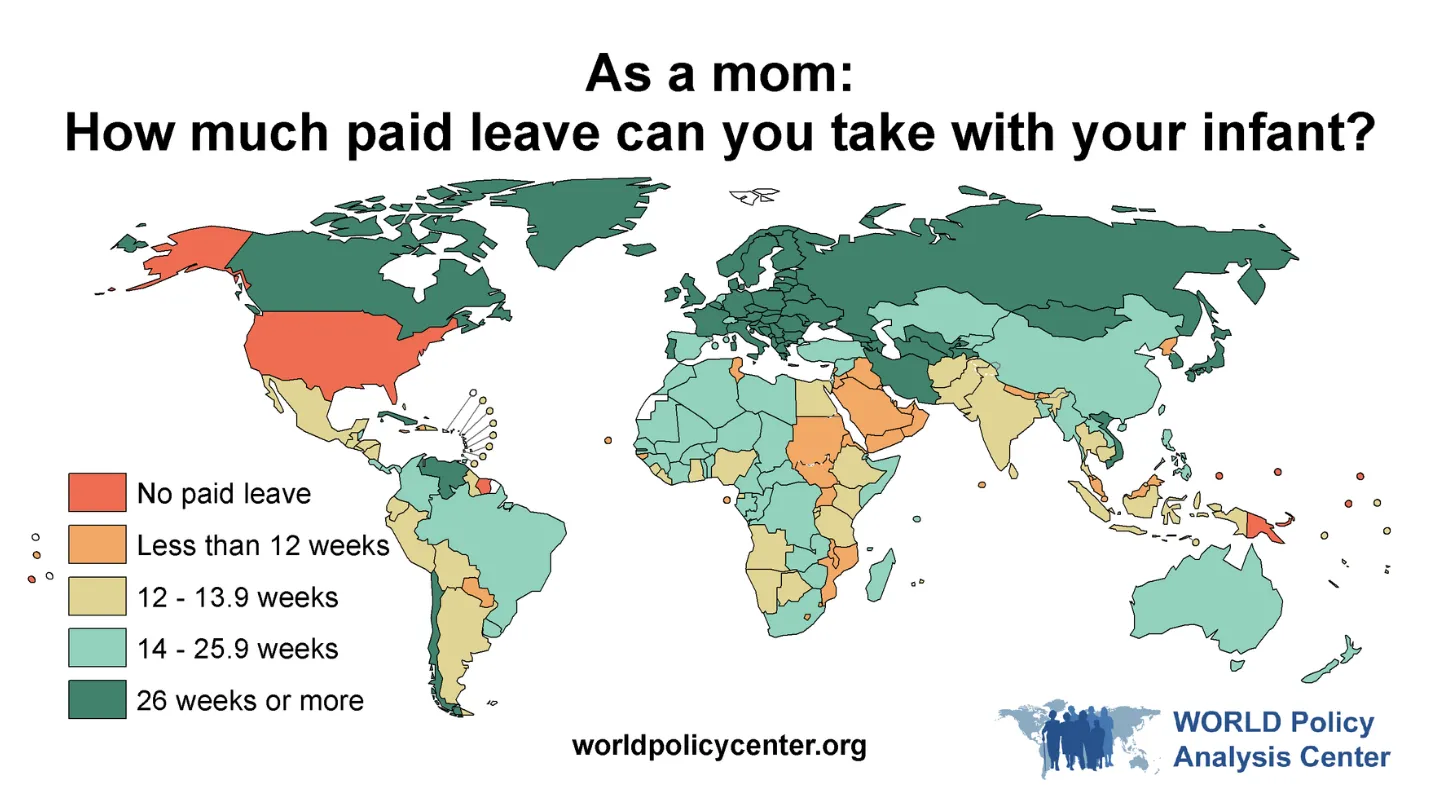
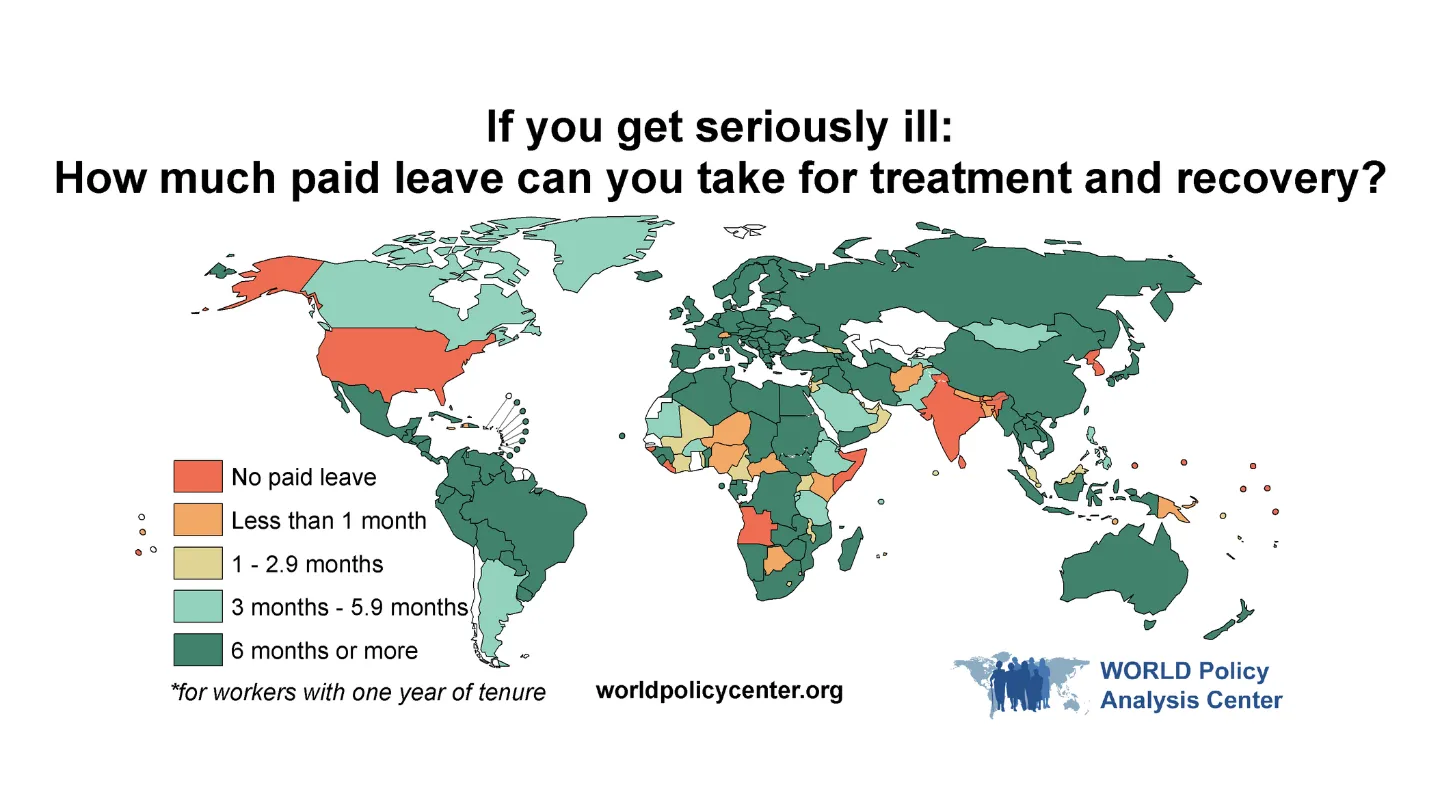
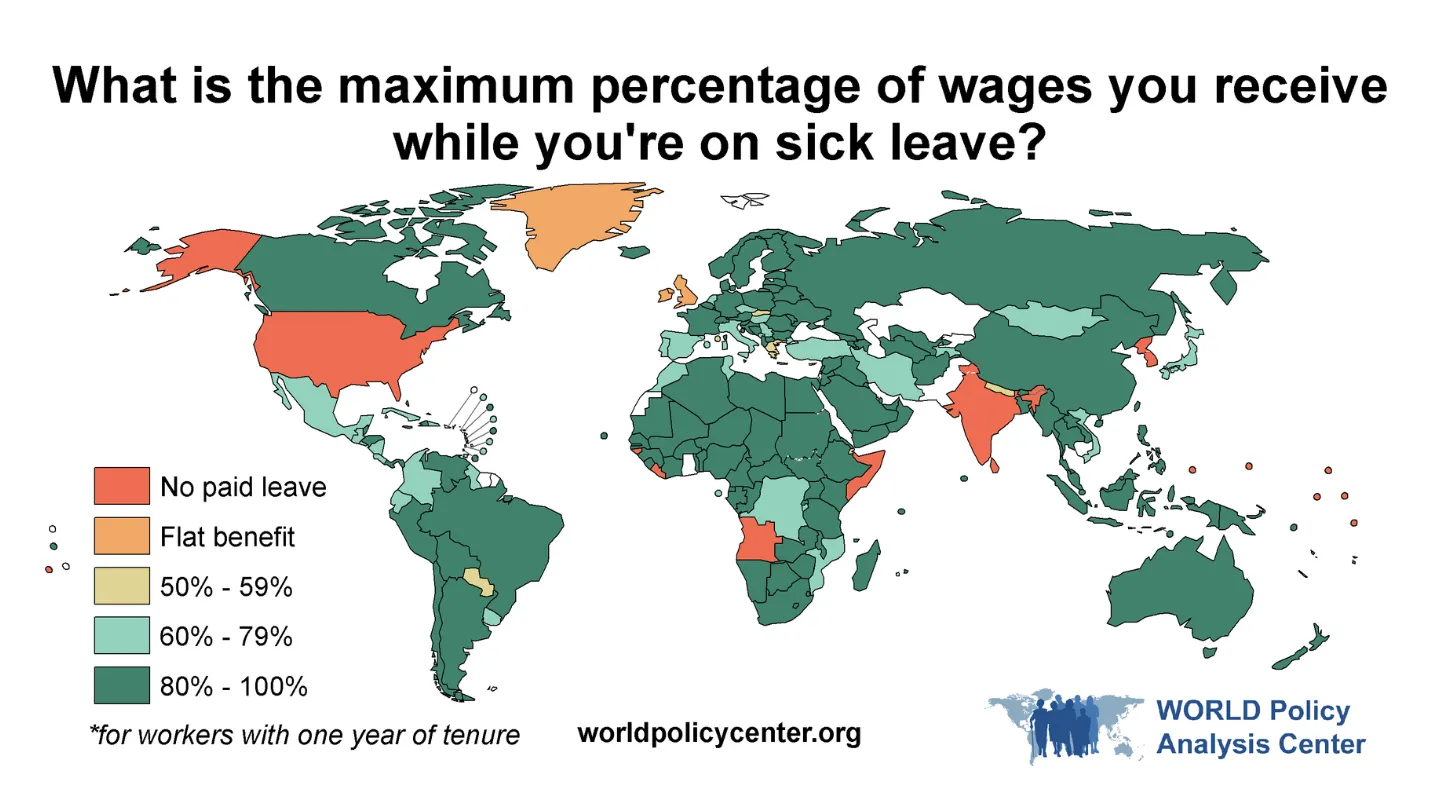
National Partnership for Women & Families
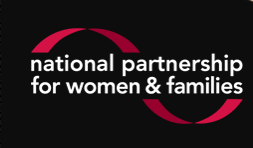 On Wednesday, February 28, Dr. Jody Heymann, dean of UCLA FSPH and founding director of the WORLD Policy Analysis Center, participated in a live audio news conference on the findings of WORLD’s new report, Paid Family Medical Leave: Healthier U.S. Families Within Our Reach. The call was hosted by National Partnership for Women & Families and included U.S. Rep. Rosa DeLauro (D – Conn.), lead sponsor of the FAMILY Act in the U.S. House of Representatives, Rosemary Arriada-Keiper, vice president of global rewards at Adobe, and Debra L. Ness, president of the National Partnership for Women & Families, the organization behind the Family and Medical Leave Act of 1993.
On Wednesday, February 28, Dr. Jody Heymann, dean of UCLA FSPH and founding director of the WORLD Policy Analysis Center, participated in a live audio news conference on the findings of WORLD’s new report, Paid Family Medical Leave: Healthier U.S. Families Within Our Reach. The call was hosted by National Partnership for Women & Families and included U.S. Rep. Rosa DeLauro (D – Conn.), lead sponsor of the FAMILY Act in the U.S. House of Representatives, Rosemary Arriada-Keiper, vice president of global rewards at Adobe, and Debra L. Ness, president of the National Partnership for Women & Families, the organization behind the Family and Medical Leave Act of 1993.

